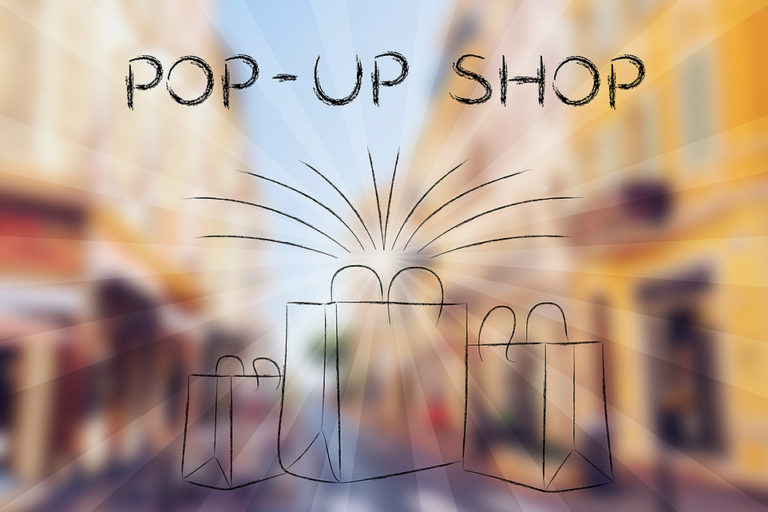If nothing else, U.S. retailers are resilient and innovative when it comes to finding new ways to market their products. The next big wave in retailing may be what’s known as “Pop-Up Retail.” Pop-up retail is a retail store, often called a “pop-up shop,” that opens temporarily to take advantage of seasonal demand or a trend in the retail industry. The term “pop-up” refers to the short-term duration of the retail stores.
A Cincinnati-based developer is replacing a luxury furniture retailer with what it calls a “Holiday Market” catering to holiday shoppers which includes everything from boutique-type tenants to local artisans such as candle makers. Concepts like Halloween costume stores, European Christmas markets, seasonal farmer’s markets, and holiday fireworks stands are examples of pop-up retailing.
The pop-up retail concept not only appeals to boutique-type brands, but also has caught the eye of larger brands such as AT&T, Levi-Strauss, Motorola, Martellus Bennett, Cotton, Kanye West, Dr. Martens, Samsung, Amazon, Everlane, Warby Parker and even some high-end brands like Kate Spade, Gucci, Louis Vuitton, and Colette are experimenting with the concept not to mention a number of restauranteurs are using the concept to fine-tune their menus.
When the coronavirus pandemic swept across the globe, two enterprising restauranteurs, Fredrik Lindfors and Chris D’Sylva, decided to open their own seafood business. Rather than commit to a long-term lease, they entered into a three-month rolling lease which gave them the flexibility they needed. D’Sylva said, “I was able to treat the space as a lab. You can’t do that with most other stores under classical, long-term leases.” Eventually, that “freedom of experimentation” allowed them to lock-in a long-term lease.
“COVID-19 has forced retailers around the world to adjust their operations and rethink strategy, reported Lydia Belanger, Production Editor for Fortune Magazine. As brick-and-mortar store have seen sales drop and online shopping is up 31% year-over-year, new “pop-up” concepts will emerge. With consumer retail spending in the U.S. down 6.1% year-over-year, the retail industry will continue to find innovative ways to market their products.
It’s likely that, as newcomer and legacy retailers are forced to deal with a “new normal,” they will use “pop-ups” as a testing ground to explore new concepts and to refine their existing retail concepts to better meet existing demand. This will help them find the balance between safety protocols, shifting consumer behavior, and what makes their customers feel good.





